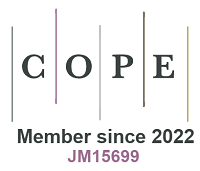Mini Review | Open Access
Alloyed single-atom catalysts for electro- and photo- catalytic water splitting
Views: 45
Chem. Synth. 2025;5:[Accepted].
Author Information
Article Notes
Cite This Article
Abstract
Water splitting by using renewable energy to produce hydrogen and oxygen, can be regarded as one of the most promising approaches for sustainable energy conversion. Developing cost-effective and high-performance water splitting catalysts plays an increasingly important role in enhancing the overall efficiency. Alloyed single-atom catalysts (alloyed SACs, also known as single atom alloy), with one of the metal atoms atomically dispersed in a host metal, combine the advantages of both single atom catalysts and traditional metal alloys. They show the maximum utilization of active metal atoms and uniquely geometric as well as electronic structures, offering great potential in reducing the cost of catalyst and boosting the performance in catalytic water splitting. This review aims to provide a comprehensive summary of the development of alloyed SACs for oxygen and hydrogen evolution reactions by water splitting. We start with a brief introduction of the mechanism for water splitting under electrocatalytic and photocatalytic conditions, followed by emphasizing the merits of the formation of alloyed SACs for water splitting. Then, the case studies of electro- and photo- catalytic hydrogen and oxygen evolution via water splitting are illustrated and discussed. Finally, challenges and prospects are provided, with further continued efforts expected for achieving future exciting progress in tailoring the active sites for designing high-performance catalysts.
Keywords
Alloyed single-atom catalyst, photocatalysis, electrocatalysis, water splitting, oxygen evolution reaction, hydrogen evolution reaction
Cite This Article
Pei GX, Qi H, Hofmann JP. Alloyed single-atom catalysts for electro- and photo- catalytic water splitting. Chem. Synth. 2025;5:[Accept]. http://dx.doi.org/10.20517/cs.2024.181
Copyright
© The Author(s) 2025. Open Access This article is licensed under a Creative Commons Attribution 4.0 International License (https://creativecommons.org/licenses/by/4.0/), which permits unrestricted use, sharing, adaptation, distribution and reproduction in any medium or format, for any purpose, even commercially, as long as you give appropriate credit to the original author(s) and the source, provide a link to the Creative Commons license, and indicate if changes were made.












